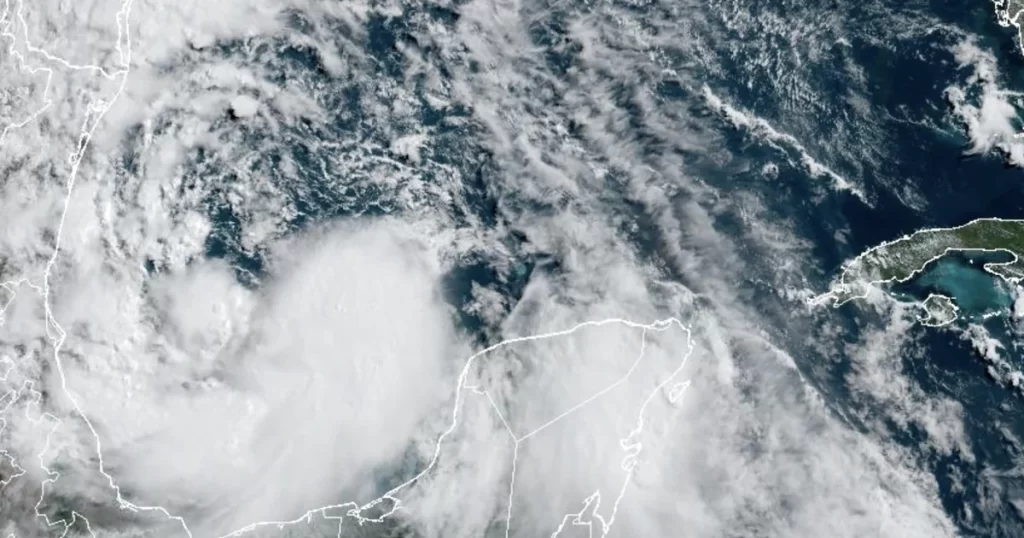Tropical Storm Alberto, the first named storm of the hurricane season, strengthened late Wednesday as it moved toward Mexico’s Gulf Coast. The storm is expected to bring up to 20 inches of rainfall to parts of Mexico and cause significant flooding and heavy rain in Texas, prompting officials to take preemptive action.

According to the National Hurricane Center, Alberto formed over the western Gulf of Mexico on Wednesday morning and is expected to reach Mexico’s Gulf coast early Thursday. The storm’s maximum sustained winds increased from 40 mph to 50 mph, with tropical-storm-force winds extending out 460 miles.
In response to the approaching storm, Texas Governor Greg Abbott issued a disaster declaration for 51 counties, stating the move was “to ensure Texans and at-risk regions have the resources and personnel needed to respond to this storm.” The National Weather Service reported moderate coastal flooding along the Texas Gulf Coast as Alberto neared Mexico.

A tropical storm warning is in effect for the northeastern coast of Mexico and the Texas coast from the mouth of the Rio Grande to San Luis Pass, near Houston. Corpus Christi is expected to experience high winds and up to 10 to 15 inches of rain. A storm surge of 2 to 4 feet is possible from Sargent, Texas, to the Sabine Pass, and there is a risk of tornadoes in deep South Texas overnight Wednesday into Thursday.
The Texas A&M Forest Service has mobilized four teams comprising 100 personnel and 24 vehicles, while the Texas National Guard has deployed three platoons with over 40 personnel and 20 vehicles, including Chinook helicopters.

In Mexico, some areas including Coahuila, Nuevo León, and Tamaulipas could receive up to 20 inches of rain. The country’s civil protection agency has warned residents to stay inside and avoid driving during the storm.
As Alberto approaches, residents in affected areas are advised to prepare supplies for five to seven days, including food, water, and other necessities. The storm’s impact coincides with an ongoing heat wave affecting over 82 million people, which is expected to last through at least Friday.



